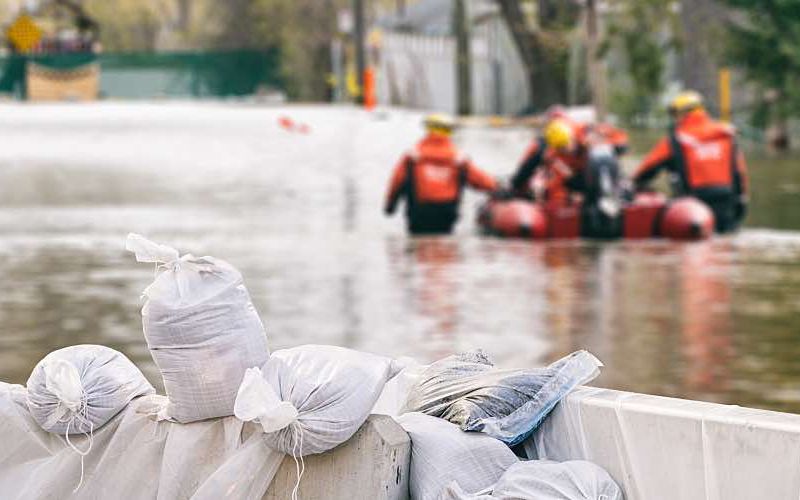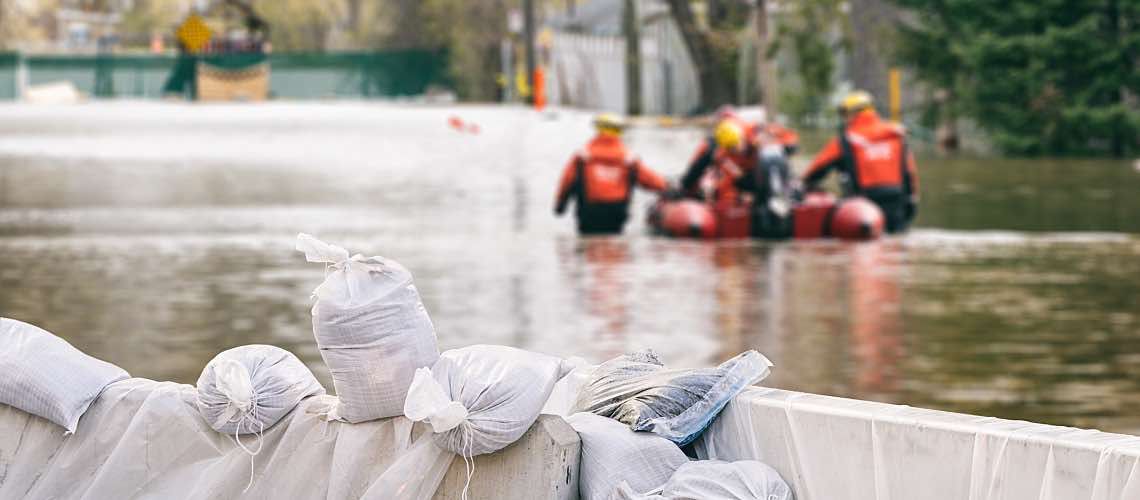IPCC Report Shows Climate Change Intensifying the Water Cycle


The Intergovernmental Panel on Climate Change (IPCC) recently released a major new climate assessment report. Specifically, the latest findings show that climate change is intensifying the water cycle globally, bringing more rainfall, flooding, and drought.
Over the past several months alone, worsening droughts, record-breaking heat, high winds, wildfires, violent storms, hurricanes, and floods have put enormous strains on water supplies, and water industry professionals are faced with a complex set of challenges about water availability and quality.
Spotlight on the Planet's Water Cycle
IPCC contributors are working on a three-part Sixth Assessment Report (AR6). Working Group I, which deals with the physical basis of climate change, released the report's first part on Aug. 9, 2021. The report's second and third installments are expected to be completed next year.
Mathew Barlow, a climate science professor at the University of Massachusetts Lowell, worked on the report as a lead author. "A number of factors are intensifying the water cycle, but one of the most important is that warming temperatures raise the upper limit on the amount of moisture in the air. That increases the potential for more rain," he wrote in an op-ed for The Conversation.
Chapter 8 focuses on water cycle changes, including how and why they're occurring. Of particular concern to the water lab industry is that the scientists anticipate climate change effects could lead to substantially depleted groundwater storage.

Expect Longer and Worse Droughts
In the Chapter 8 section on aridity and drought, the scientists expressed high confidence that even under low-emissions trajectories, enormous changes will probably occur regionally that affect water availability.
"In some dry regions, droughts will become worse and longer lasting. Such risks are compounded by knock-on consequences, such as greater risk of wildfires," Mike Meredith, science leader at the British Antarctic Survey and a lead author for the IPCC report, told The Guardian.
Snow cover loss and shorter snowfall seasons are causing serious drought in the U.S. Midwest and Southwest. Drought in California intensified over the summer, too. Drier conditions lead to water quality issues for many clients who might not have encountered them before.
Heavier Rainfall and Flooding Events
The more water that evaporates in a warmer world, the higher the amount of precipitation when it does rain, co-director of the Grantham Institute on Climate Change at Imperial College London Ralf Toumi explained to The Guardian. Expect more intense downpours and floods in the future, based on the IPCC report.
Coastal cities will probably continue to bear the brunt of rising ocean levels as well. "At 1.5 degrees of warming, ocean levels are projected to rise another 1 to 2 feet this century, regularly inundating many coastal cities with floods that in the past would have occurred just once a century," the New York Times reported.
Flooding can overflow sewage and stormwater pipes, overwhelming water treatment plants. Raw sewage flows toward drinking water facility intakes. After Hurricane Ida made landfall in late August, catastrophic damage prompted boil water advisories from Louisiana to New Jersey. The storm also broke pipelines that carry crude oil and hazardous chemicals, creating widespread pollution.
Measures Your Lab Can Take Now
The IPCC report found that climate change effects are likely to worsen for at least another 30 years, but water lab leaders can act now to prepare for the future.
If you haven't started already, your lab can plan now for extreme climate events. Review your existing lab processes and procedures. Make sure your employee training is up to date and that you can handle an unexpected wave of samples. Collaborate with your staff to establish emergency preparedness protocols. Get ready for potential flooding. Include contract and neighboring labs in your emergency planning. As the global water cycle changes, water testing becomes even more essential than ever for protecting human health.






